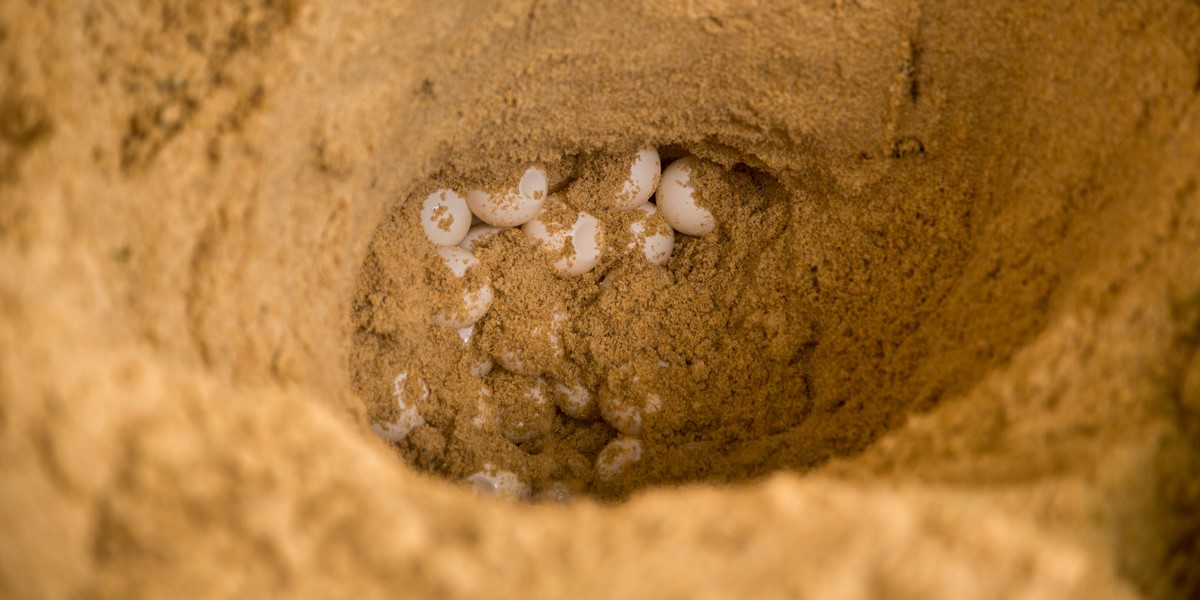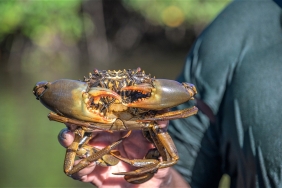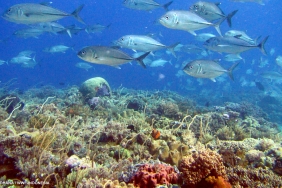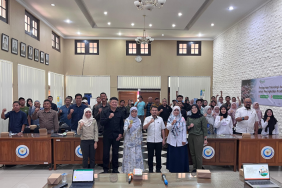CHALLENGES IN TACKLING TURTLE EGG TRADE: A LESSON-LEARNED FROM BERAU
By Masayu Yulien Vinanda
Jakarta (09/03)-Cheering news came from Samarinda. Starting 18 March 2012, Police in Samarinda will officially begin to strictly enforce the regulation against the trade of turtle’s eggs in the city. As an initial step, the police had issued notices to all turtle egg sellers warning them to stop selling turtle eggs. The crackdown will be conducted not only to the retailers, but also to the distributors.
This repressive action is crucial since Samarinda has become one of the biggest market places for turtle egg trade in East Kalimantan. These white eggs which are the size and shape of ping-pong balls with a soft shell are also sold for the large number in Berau and Tarakan, two other markets for turtle egg in the province.
The turtle egg trade in Samarinda has rapidly grown since 2007. At that time, there were 19-20 outlets selling turtle eggs every day along RE.Martadinata street, Teluk Lerong. Each outlet provided 1500-3000 eggs and was able to sell 1500-2000 eggs perday. However this condition had gradually recovered. Recent trade data in January 2012, recorded the presence of only 5-7 outlets that sell around 500-700 eggs perday.
The downward of turtle egg trade activities in Samarinda is undoubtedly good news. However, a lesson-learned from Berau district, East Kalimantan in banning egg harvests from their turtle nesting islands and its impact on the reduction of egg trade in Samarinda needs to be considered to be replicated in other cities.
The Derawan islands, Berau Regency is one of the largest green turtle nesting habitat in Southeast Asia. There are seven turtle nesting sites located on the islands Derawan, Semama, Sangalaki, Bilang-Bilangan, Mataha, Sambit, and Belambangan. The harvest of turtle eggs had taken place for many decades and had once become one of the sources for district revenues through the egg concession policy. According to data from Berau Government in 1999, 27,120 turtle nests were found, producing 2,535,280 turtle eggs peryear. Inspiringly, the business yielded more than 2-3 billion rupiahs peryear. Consequently, this has caused the declining of the turtle populations in Berau islands. The turtle business has also become controversial in East Kalimantan since this marine species have been placed on the international list of endangered species.
Nonetheless, since Berau Government has banned turtle egg exploitation in Derawan and Sangalaki islands in 2002, and later expanded to all turtle islands in 2005, the open trade activities on turtle egg in the regency had been rarely found.
“The five turtle nesting ground; Derawan, Semama, Sangalaki, Bilang-Bilangan, and Mataha islands, there are approximately 17,500 individuals peryear. Meanwhile there are about 16,500 individuals nesting in the island, “Site Coordinator Marine Program WWF Indonesia- Berau Rusli Andar said.
Combatting illegal trade on turtle and their eggs has become one of WWF conservation works in Berau. Since WWF started its operation in Berau in 2001, Andar added, a number of campaign and public awareness activities against turtle egg trade and consumption have been conducted. Moreover, advocacy effort to stop trade on turtle egg and turtles has also been undertaken.
“The law enforcement in Berau has been well improving. There have been many cases in which a turtle egg smuggler or trader carries 1-2 year imprisonment. To date, in Berau, we hardly find people openly selling turtle eggs. I am very optimistic that the crackdown against turtle egg trade in Samarinda will give significant contribution in an effort to eradicate turtle egg trade, which will consequently help sustain this endangered marine species. Furthermore, this will also ensure the balance of marine ecosystem itself, “ Andar emphasized.
WWF also promotes turtle-based alternative ecotourism in order to support turtle conservation effort in Berau. WWF also collaborates with Yayasan Penyu Berau and Nature Conservation Agencies on nesting beach monitoring and management to deter egg poaching and prevent the threats that may disrupt nesting activities and the production of hatchlings.




